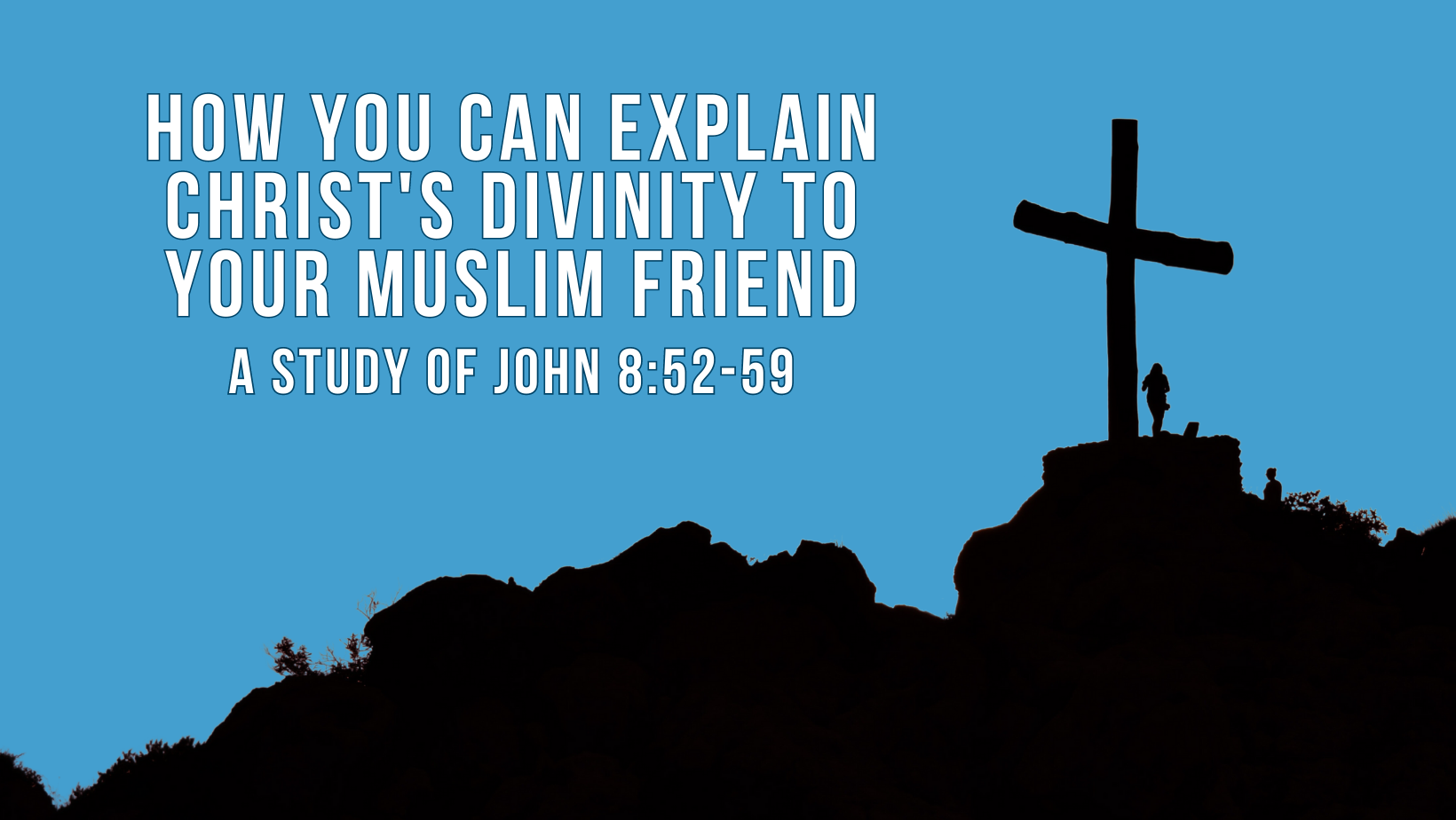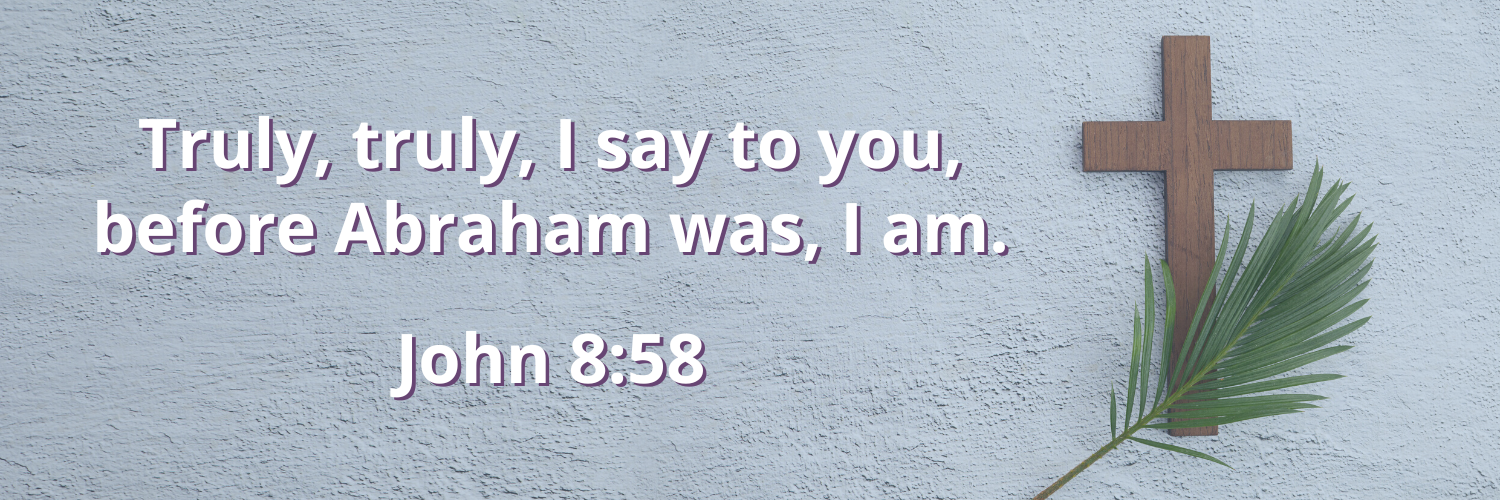How you can explain Christ's divinity to your Muslim friend - A study of John 8:52-59

Studying the Bible is beneficial and important in our faith walk because it bolsters us, but studying also prepares us to share the truth with others. As we dig deep into this passage about Christ’s divinity, we can think about how it impacts us but also how this truth can change our Muslim friend’s life.
When you try to talk to your Muslim friend about Jesus as a healer or a wondrous teacher, you might be surprised to hear them agree with you. But when you talk about Jesus’ divinity, you will find out that they refuse this belief. The Quran says that Jesus was a prophet of Allah, not the Son of God and certainly not God:
“The Messiah, Jesus the son of Mary, was but a messenger of Allah and His word which He directed to Mary and a soul created at a command from Him.” Quran 4:171
Satan uses this lie to keep Muslims’ hearts closed to receiving the gospel. They do not believe Jesus is God, which means they do not believe that He has the power to forgive sins or save them. They remain trapped in Islam’s rules and rituals to try to save themselves from their own sins through good works.
We believe we should study Christ’s divinity so we can teach our Muslim friend about it! Once they understand that Jesus is Lord and that He loves them, their life can change.
What does the Bible say about Christ’s divinity?
We are going to focus on a passage where Jesus makes one of His biggest statements about His divinity: John 8:52-59. Jesus is preaching in the temple to a large assembly of Jews, some of whom believe He is the Messiah, and some don’t:
“At this they exclaimed, ‘Now we know that you are demon-possessed! Abraham died and so did the prophets, yet you say that whoever obeys your word will never taste death. Are you greater than our father Abraham? He died, and so did the prophets. Who do you think you are?’
Jesus replied, ‘If I glorify myself, my glory means nothing. My Father, whom you claim as your God, is the one who glorifies me. Though you do not know him, I know him. If I said I did not, I would be a liar like you, but I do know him and obey his word. Your father Abraham rejoiced that he would see my day. He saw it and was glad.’
So the Jews said to him, ‘You are not yet fifty years old, and have you seen Abraham?’
Jesus said to them, ‘Truly, truly, I say to you, before Abraham was, I am.’
So they picked up stones to throw at him, but Jesus hid himself and went out of the temple.”
This passage is packed with important OId Testament references and deep theology. But here, we want to highlight one phrase “I am” which gives us a clear insight about both the Father and the Son.
Who is the father of this crowd?
Abraham is called the father of all of Israel. He was and still is highly revered among the Jews because their faith is traced back to Abraham’s covenant with God. Part of this covenant included God promising Abraham that he would be a father to a nation more numerous than the stars. The Jewish crowd reminds Jesus in this passage that they have the great man, “Our father Abraham.” Who is He compared to him?
It is not a coincidence that Jesus then makes a claim about who His father is. His response is, “My Father, whom you claim as your God, is the one who glorifies me.” This fatherhood dynamic sets Jesus apart from anyone else; the Jews around Him may have Abraham as their father, but Jesus’ father is the God they worship.
The big “I am” statement
Jesus claims that Abraham rejoiced in seeing Jesus’ day, which is confusing for the Jews because Abraham has been dead for thousands of years. Then Jesus says:
“Truly, truly, I say to you, before Abraham was, I am.”
Their immediate response is to stone Him, which to a modern-day reader may not make sense until we know the context behind what Jesus is saying. It goes back to Exodus 3:14, the story of God talking to Moses from a burning bush that all Israelites would have known.
“God said to Moses, ‘I am who I am. This is what you are to say to the Israelites: ‘I AM has sent me to you.’”
This name of God, I AM, comes from the Hebrew verb that means “to be or to exist.” It shows God’s eternal character as well as His eternal presence. He is not bound to time or the rules of the world. He is Yahweh, God, I AM.
So Jesus had been slowly leading up to this final point, warming up the Jews to hear this final statement, first by claiming that God is His father, not Abraham. Then, He tells them “Before Abraham was, I am,”meaning He existed before Abraham and after, and He shares the same name as He who spoke to Moses from the burning bush!
This is why the Jews want to kill Jesus– He is claiming to be God.

The deity of Christ is one of the hardest topics you can talk about with your Muslim friend because they think you are introducing a second god for them to believe in rather than the one triune God. That’s why you need to lean totally on God’s Spirit to speak through you and to also open your friend’s heart and mind to accept this truth and to believe. Remember the Bible tells us that “...no one can say, ‘Jesus is Lord,’ except by the Holy Spirit” in 1 Corinthians 12:3.
It is not your responsibility to make your Muslim friend believe, but you can definitely help provide them with Bible passages to read, articles, books, and videos to watch.
One of the ways you can use the passage above is to show your friend the ways the New Testament is interconnected with the Old Testament, and to also reveal to them that God the I AM is the same in both the Old and New Testament. But don’t be surprised if this doesn’t make your Muslim friend immediately change their mind. You can always present them with the truth, but you cannot make them believe it.
This is a difficult topic, but do not hesitate to bring it up with your Muslim friend. You may be the only Christian they would hear this from! Here are some questions we suggest to start with:
- I know you think Jesus is only a prophet. Have you tried to compare Him with other prophets to discover whether He is more than a prophet? Would you like us to do this together?
- As you may know from the Quran, Jesus is the only One born without sin, and born miraculously from a virgin and from the Spirit of God. Why do you think He is unique like this and what can this mean?
- I know you consider Jesus a prophet, but He is the only one who is still alive, and the Quran affirms this. Why do you think He is the only one who is not dead? What could this mean?
If you would like to learn more about Islam’s beliefs about Jesus and how to talk about them with your Muslim friend, read these posts.
Prayer
Dear Lord, thank you for showing us your overarching story throughout the Bible. I am so grateful for this relationship with You. Please give me the opportunity to share that Christ is Lord with my Muslim friend. Amen.
